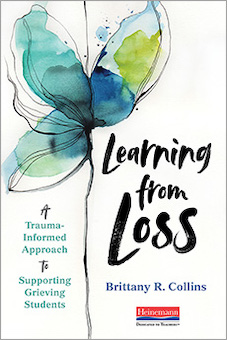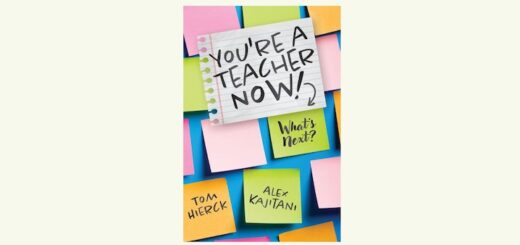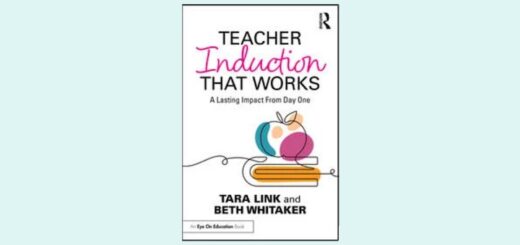Trauma-Informed Support for Grieving Students
Learning from Loss: A Trauma-Informed Approach to Supporting Grieving Students
By Brittany R. Collins
(Heinemann Publishing, 2021 – Learn more)
Reviewed by Sara Coppola
Learning from Loss isn’t just another professional development book written by an educator; it’s a heartfelt guide written by someone who endured a tremendous loss as a teenage student.
Brittany Collins, the founder of Grief-Responsive Teaching, has taken her own personal experience as a grieving student and skillfully woven it together with knowledge of pedagogical practices and extensive research on navigating loss.

Collins arranges Learning from Loss into chapters titled as questions, such as “When a Student Is Grieving, What’s Going On?” which dives into the neurological and physiological effects of grief and bereavement, as well as “How Can I Teach and Talk About Loss in Class?” which gives educators tools for navigating topics surrounding loss that naturally arise during lessons.
For instance, Collins includes a story shared by educator Glenn Manning in which his English class was reading Catcher in the Rye. One of the students had a brother who had recently died by suicide, and his parents questioned why they would be reading a text that had a character who also died by suicide.
“Should we skirt around mortality?”
Collins asks questions with which many educators are often wrestling: “Should we skirt around mortality? Address it abstractly or directly? What if we know someone in our classroom is actively grieving–what then?”
She then offers an idiom often used by her late father: “The truth lies somewhere in the middle.” This specific chapter aims to give options and insight rather than hard and fast rules for handling such delicate, nuanced topics.
Throughout the book there are checklists and examples of activities that can be used in a classroom setting. A personal-care permission slip gives students agency to take care of their own mental health and well-being; each student identifies people and strategies – unique for them – to employ when feeling dysregulated. Teachers, who sign this permission slip along with students, are given insight into how they can also help students during these moments.
It’s important to note is that in order for this permission slip to be effective, teachers must be willing to allow students to use these strategies. If a teacher is taking the time to read this book, then surely they understand its importance and will uphold the agreement.
Another activity is Milestone Memories in which students create a visual timeline of defining moments in their lives. If they choose to share even a bit of their timeline with their peers, they are able to make connections with each other and recognize how different life events have shaped them. In closing each chapter, readers are provided with a short “Write and Reflect” activity to help cement the ideas presented.
Inward reflections, too
Chapters such as “What if I Mess Up?” and “What if I Can’t Do This?” encourage educators to be reflective and grow themselves. I consider myself to be a trauma-sensitive person, but I still felt a bit of conviction when reading Collins’ advice for repairing relationships. As humans we are never finished growing emotionally, mentally, and socially, and we are all flawed – so even the most trauma-sensitive educator will benefit from gentle guidance on how to apologize.
Personally, I found the chapter on compassion fatigue and secondary trauma to be extremely beneficial. As a librarian, I experience my space as the hub of the school, and I have both the privilege of seeing students across all grades and the freedom of not having to follow curriculum, make lesson plans, and grade students; therefore, many students consider the library their safe space, and I am able to offer a nonjudgmental listening ear.
I have noticed that this comes at a cost to me (and consequently my family when I go home after a particularly draining day). The practical tips and counsel offered are something I will carry with me throughout my career and that I wish would be valued and implemented by administrators and staff in every school.
A book for all educators
I highly recommend Learning from Loss to any educator – not just any educator who has a heart for supporting grieving students, but all educators. We have such a lasting impact on students’ lives, and for that we should be honored and therefore be the best we can be for them, especially in times of trauma and grief. Thank you to Brittany Collins for sharing your experience, both personal and professional!
Sara Coppola is a librarian at Gilbert H. Hood Middle School in Derry, New Hampshire. An avid reader, an aspiring writer, and a mom, Sara jumped into her new role in 2021 not only as middle school librarian, but also as a trusted adult for many students. She brings vibrancy to her library and can offer personalized book recommendations while also providing a safe space for students to vent their frustrations, shed some tears, and decompress without judgment. Follow her library adventures on Instagram @mrscoppolaslibraries.































